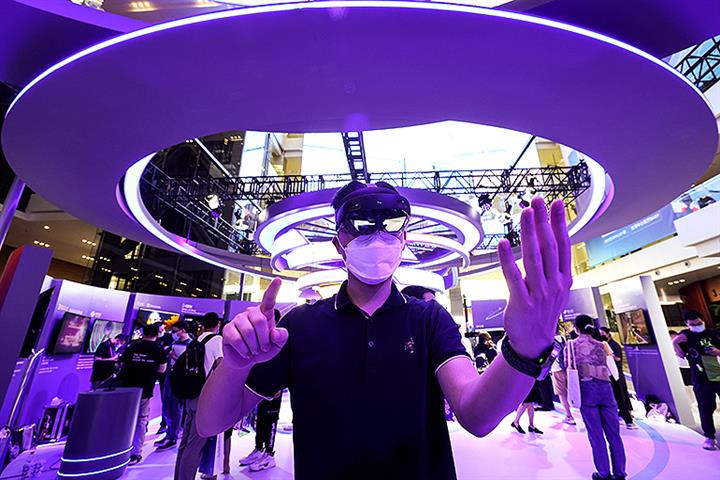 Tencent, NetEase Offer Glimpse of Their Metaverse Plans
Tencent, NetEase Offer Glimpse of Their Metaverse Plans(Yicai Global) Sept. 5 -- Tencent Holdings, the world’s biggest video games company, and rival NetEase outlined their metaverse businesses and plans for the emerging field to Yicai Global at the 2022 World Artificial Intelligence Conference on Sept. 3.
Tencent will not have a dedicated division to oversee its metaverse business as the concept involves so many areas, said Wu Yunsheng, vice president of Tencent Cloud and general manager of YouTu Lab. Instead, the company will integrate the technologies developed by YouTu Lab, its artificial intelligence unit, including three-dimensional modeling, digital human, and speech recognition, to tackle challenges in the field.
Tencent will combine most of its research on algorithms with applications, while basic research will be based more on algorithms, Wu added, noting that the Shenzhen-based firm will use its technologies for enterprises and individual consumers, with its unit QQ mainly focused on the latter.
Tencent joined hands with Lux Case last year to provide the electronic components maker with an AI-based quality control algorithm that YouTu Lab developed independently to replace visual inspections and help Lux Case achieve a misdetection rate close to zero.
For its part, NetEase has come up with Yaotai, an immersive online meeting platform based on cloud gaming and AI technologies that enhance interconnections between virtual people and virtual settings.
NetEase encountered fewer technical challenges when developing Yaotai because it had built up technologies through game development, said Liu Bai, the platform’s chief.
NetEase Yaotai puts the rendering process on the cloud, so users can access the platform via a browser without downloading an installation package. Yaotai has a dozen scenarios and offers nearly 100 distinctive decorations and can provide deep simulations of real settings.
The platform will make money by offering online exhibition booth decoration services, but it is still in the testing stage, Liu added.
China’s metaverse sector will grow to CNY40 trillion (USD5.8 trillion) by 2030, making up 20 percent of the country’s gross domestic product, with the related electronic products and wearable devices market reaching USD100 billion, according to Liu Minghua, deputy chief executive and chief quality and transformation officer at Deloitte China.
The sector raised CNY5.5 billion (USD790 million) in China and had 160,000 virtual human enterprises in the first half of the year, with more than 20 provinces and cities supporting the sector, according to a report by the e-commerce research center of the digital economy website 100EC.
Editors: Shi Yi, Futura Costaglione